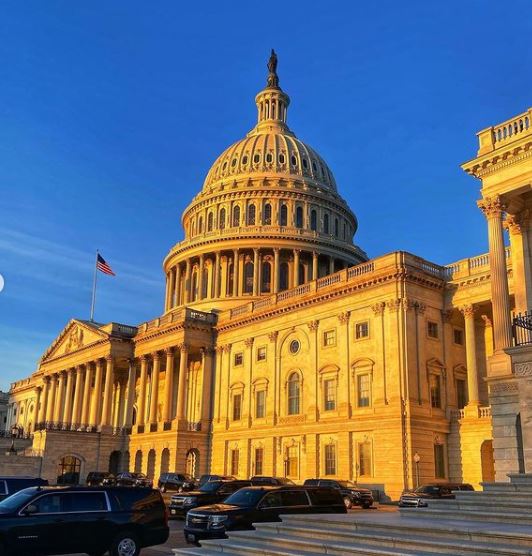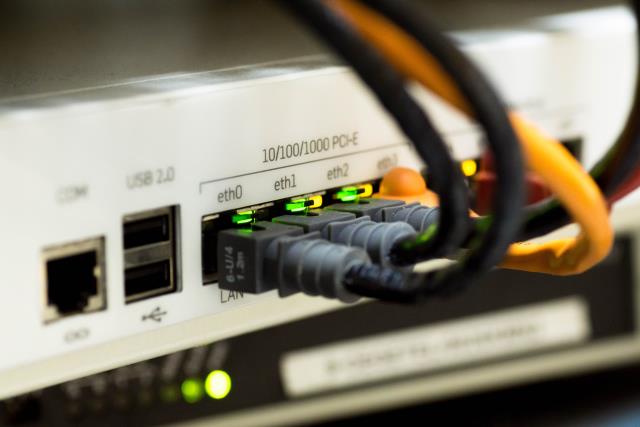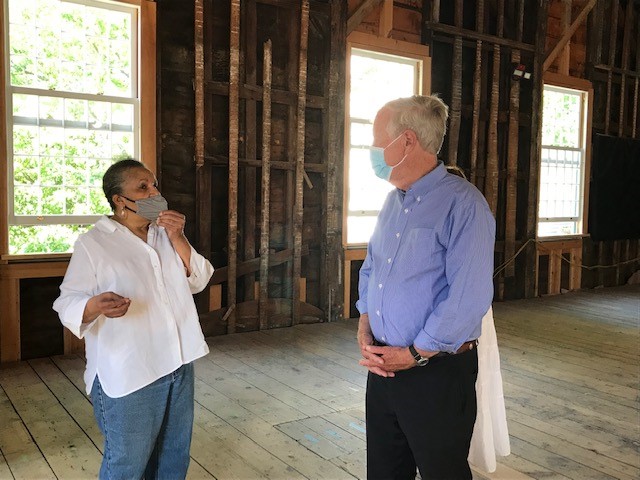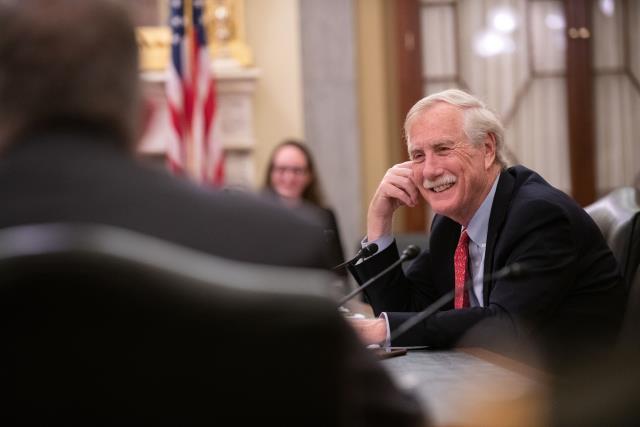The Inflation Reduction Act – Investing in Today and Tomorrow

I know this month's newsletter is a few days late, but there has been so much going on in just the last week alone that I didn't want to leave out. First, is the Inflation Reduction Act.
From electric bills to groceries, people across Maine are struggling with rising prices. While there are dozens of causes of inflation, they boil down to one result: your money isn’t going as far as it used to. The Inflation Reduction Act is a major step to address growing daily expenses and bring both immediate and long-term inflation relief to Maine people. This historic legislation will cut costs, create jobs, and curb climate change while reducing the federal deficit.
The bill directly addresses areas where costs are rising the most, including healthcare and energy prices. After years of Maine people – especially seniors – spending too much on their medications, the bill will allow Medicare to negotiate significant discounts and cap beneficiaries’ out-of-pocket medication costs at $2,000 per year. It also extends critical Affordable Care Act (ACA) subsidies to keep premiums low.
This will mean lower healthcare costs and less financial stress for the 30% of our state enrolled in Medicare and the more than one hundred thousand Maine people who receive healthcare through the ACA.
Along with healthcare, the historic package works to drive down the costs of oil and gas, while investing in a future of American-produced clean energy. With investments in the domestic production of fossil fuels, we can put more gas on the market and lower prices while we transition to cleaner energy sources.
Combined with support for household energy savers like heat pumps and insulation, the bill could cut energy expenses for the average Maine family by almost $2,000 a year – and that’s just the short-term benefits.
Looking to the future, we can lower long-term energy costs by incentivizing clean, affordable, American-produced energy. That’s why the Inflation Reduction Act provides much-needed funds to boost domestic manufacturing of wind, solar, hydropower, battery storage, and other key technologies. It’ll help to reduce carbon emissions by nearly 40% from 2005 levels and create thousands of good-paying jobs nationwide.
Beyond these significant inflation-cutting investments, the Inflation Reduction Act legislation will also reduce the deficit by an estimated $1.9 trillion over the next two decades by closing tax loopholes long exploited by massive corporations and the wealthiest Americans. This won’t raise taxes one cent on working people – instead, it makes sure a welder at BIW won’t be paying more in income taxes than a giant multinational company.
With all these provisions combined, the Inflation Reduction Act is a huge step to lower healthcare and energy costs, cut carbon emissions, and reduce the deficit for decades. It’s a game-changing piece of legislation that addresses today’s challenges and sets Americans up for continued success in the decades ahead.
Boosting American Innovation and Technological Independence

From smartphones to smart cities and kitchen appliances to cars, almost every aspect of modern life relies on tiny technologies called semiconductors. These "chips" are the building blocks of the 21st century, and recent conflicts and supply chain issues have shown that the United States cannot afford to be dependent on other nations – let alone adversaries – for the essential parts.
Currently, the majority of America’s chips come from overseas, but with the just passed CHIPS for America Act, we'll be bringing production back home. The bipartisan bill includes a historic investment to massively boost the domestic manufacturing and development of these technologies vital to our nation’s national security and economy. The House also passed the bill, and President Biden will sign it into law this week.
This bipartisan legislation will spur American innovation, create thousands of good-paying manufacturing jobs, and make sure our nation’s fragile supply chains are not overly reliant on competitors like China. It will also address one of the many causes of inflation by helping alleviate the component shortages at the heart of rising prices for cars and consumer electronics worldwide.
Along with the investments in semiconductors, I’m excited by the significant funding the bill authorizes to help American researchers stay on the forefront of technologies like clean energy, advanced computing, and high-speed internet. This will mean more innovation here in America, and will also present new opportunities for Maine to continue growing our 21st century industries.
As a whole, the CHIPS for America Act represents a significant investment in our nation’s future, and a huge step towards addressing the evolving economic and national security challenges posed by China. I’m grateful for the strong bipartisan support it received, and look forward to seeing its impacts for years to come.
Uniting the Free World Against Russian Aggression

Six months ago, Vladimir Putin ordered Russian troops to invade Ukraine with no provocation, hoping to divide the NATO Alliance and to rebuild the Soviet Union. He has failed on both counts. The United States and our allies have stood steadfast against Russian aggression, reaffirmed our commitment to NATO, and provided Ukraine with the tools to hold strong against Putin’s attacks. Last week, the U.S. Senate took a historic step to build on this resolute response by approving Sweden and Finland’s applications to join the defensive alliance.
The addition of these two allies will make NATO stronger and more united in the face of Putin’s misguided ambitions. Combined, Sweden and Finland are a significant boost to the defensive capabilities of the alliance.
I saw the potential benefits of adding these new members earlier this year, when I traveled to Finland as part of a bipartisan Congressional Delegation shortly after its government formally requested NATO accession. It was clear the nation and its leaders shared our commitment to promoting democracy, countering Russian aggression, and strengthening the international rule of law. I am hopeful that both applications will continue to move forward swiftly. You can read more about my stance on these applications in my opinion piece for Newsweek HERE.
This vote has made one thing abundantly clear: the free world stands united against Vladimir Putin’s would-be empire building, and is ready to respond against his illegal and immoral military attacks. NATO, the United States, and the U.S. Senate will not allow him to destroy freedom-loving nations; we will stand with our allies, as we have in the past, united against despotism.
Meeting Our Promise to America's Veterans

Supporting our veterans after their active service is among America’s most solemn commitments, but unfortunately, it’s one we have not always met. Millions of America’s men and women in uniform who were exposed to toxic substances in the line of duty are fighting a personal battle against lifelong health issues connected to their service.
Finally, after years of work and advocacy by veterans groups, the House and Senate have passed comprehensive, bipartisan legislation that will fix this oversight and provide veterans exposed to hazards their earned healthcare and benefits. The Sergeant First Class Heath Robinson Honoring Our Promise to Address Comprehensive Toxics (PACT) Act of 2022 will expand VA benefits eligibility to support veterans exposed to toxic hazards such as burn pits and Agent Orange – meeting the present and future needs of America’s heroes.
It doesn't solve all the challenges facing America's veterans, but the PACT Act will bring us closer to meeting the moral obligation we have to our heroes by providing the benefits, support, and healthcare these men and women deserve. You may have heard about a few of the hiccups the bill ran into last week, but at the end of the day, the Senate was able to overwhelmingly pass the bill and deliver on America’s enduring promise to our servicemembers.
Helping Create Affordable Workforce Housing on MDI

Almost every town across Maine is dealing with a serious workforce shortage – small and large businesses alike are struggling to find workers, with some being forced to limit hours, or even close their doors entirely. There are few places feeling this crunch more than Mount Desert Island – one of the jewels of America – where a recent surge in visitation has not been matched with a surge in workers.
Part of this problem is because of housing; there simply isn't enough affordable housing on MDI for the workers who need to live there. After working with island leaders on the island, I introduced bipartisan legislation with Senator Collins to facilitate the building of more housing, which will help everyone from the National Park to Bar Harbor businesses hire and retain more employees. Earlier this month, the bill received the overwhelming support of the Senate's Energy and Natural Resources Committee, and will now be heading to the Senate floor.
If passed, the bill would transfer part of an undeveloped parcel of land in the Village of Town Hill from the federal government to the Town of Bar Harbor for the specific development of affordable workforce housing. The remainder of the parcel would be used by the National Parks Service to construct staff housing to keep pace with the park’s popularity and increased visitation.
This will be a big step to solve the housing crisis facing the community and create more year-round and seasonal staff housing for both the park and the island’s towns. Along with helping businesses hire and retain workers, it will give more of the Island’s people the ability to live and work in the place they love.
Investing In Maine's 21st Century Success

When we talk about expanding broadband, one of the questions I hear the most is: "when will Maine actually see this money?" Well, the answer is now. This month, the Treasury Department approved $110 million in American Rescue Plan funds for the state's rapid expansion of affordable, high-speed internet connections.
This funding will bring broadband access to 22,500 households across the state – predominantly in rural, underserved areas. That's roughly a quarter of the households in the state who lack these high-speed connections and the opportunities they create.
This will make a significant difference for the communities throughout our state receiving the funds – expanding economic prosperity, opening educational pathways, and creating convenient ways to get critical services like healthcare. When combined with the broadband provisions in the Bipartisan Infrastructure Law, this will get us close to ensuring that every Maine person – regardless of where they live – can access the critical 21st century service.
My colleagues and I worked hard to include these funds in the American Rescue Plan, and I look forward to seeing how this investment creates valuable new opportunities for Maine people.
Backing A Maine Resident for A Key Cyber Diplomacy Post

Protecting America's cyberspace takes more than just strong defenses, it requires international cooperation and partnership with our allies. Currently, there's a dangerous lack of international cyber norms, and the United States must step up our efforts. This was one of the key recommendations of the Cyberspace Solarium Commission: to create an office within the State Department that can coordinate a global response to the rapidly changing cyber landscape.
Earlier this year, the Biden administration listened to our calls, established the Bureau of Cyberspace and Digital Policy, and nominated Maine resident Nate Fick to lead the new department.
You could not find a more perfect candidate for the job than Nate. From serving as a Marine in Iraq and Afghanistan, to leading one of the country's foremost cyber software companies, Nate has demonstrated extraordinary leadership, and a deep understanding of the cyber threats facing our country. He's immensely well qualified and would excel in the role.
Last week, I had the privilege of introducing Nate to the Senate Foreign Relations Committee for his confirmation hearing. It was a good opportunity to stress the importance of Nate's role, and to urge his speedy, bipartisan confirmation. I cannot imagine a better person for this vital position – and the fact that he's from Maine is simply the cherry on top.
Seeing the First-Hand Impacts of Congressionally Directed Spending

Last year, Congress restored the practice of Congressionally Directed Spending that allows Members of Congress, rather than unelected government employees, to direct funding to a state, locality, or non-profit group for projects that demonstrate civic and community value. I was proud to help secure ninety-three 2022 CDS investments totaling $137,252,598 to support Maine people, organizations, and communities.
One of the places receiving this support was Portland's Abyssinian Meeting House — America’s third oldest meetinghouse constructed by a Black congregation — which will be using $1,700,000 in Congressionally-Directed Spending (CDS) to restore the historic building before its 200th anniversary in 2028. Last month, I was excited to tour the site with leaders of the restoration effort to see the work they're doing and what these funds will mean for their mission.
The Meeting House is more than just a building — it is a cultural institution and physical reminder of the centuries of contributions Black Mainers have made to the state we all love. The restoration effort shows just how important this building is to Maine’s Black community and what it represents to American history. It was a powerful example of how Congressionally-Directed Spending is being used to support our state.
There’s dozens of similar success stories that we were able to include in last year’s spending bill. You can find the CDS investments coming to your communities with our new interactive map. Check it out HERE.
Summer Policy Update

As a reminder, you can read more on my regularly updated press release page at king.senate.gov. Here are some other priorities I’ve been working on:
- Addressing childcare issues at PNSY. Senator Collins and I are calling on the Department of Defense (DOD) to expand childcare resources at Portsmouth Naval Shipyard (PNSY) after new DOD guidance has caused dozens of the shipyard’s civilian employees to lose access to the vital service. Read more HERE.
- Sounding the alarm on Monkeypox. Twenty of my Senate colleagues and I are raising concerns about America’s growing number of monkeypox cases and calling on the Biden administration to take actions to address the shortage of vaccines. Read more HERE.
- Reinstating net neutrality protections. I introduced legislation to reinstate internet neutrality protections and prohibit internet providers from unfair practices. The Net Neutrality and Broadband Justice Act would reclassify broadband internet, giving the Federal Communications Commission (FCC) authority to protect consumers. Read more HERE.
- Helping injured first responders. I cosponsored bipartisan legislation to help ensure America’s first responders receive full retirement benefits if they are injured on the job. Read more HERE.
- Expanding veteran assisted living services. I cosponsored bipartisan legislation to expand senior veterans’ access to assisted living services -- saving taxpayer money and give older veterans more independence. Read more HERE.
In The News

Thanks for subscribing to my monthly newsletter! I would love to hear your ideas for how we can make Maine and our country a better place. Please feel free to reach out with any questions, comments, or concerns by visiting: https://www.king.senate.gov/contact —we look forward to hearing from you.
All the best, and stay healthy!

To unsubscribe to this e-Newsletter click HERE.
|